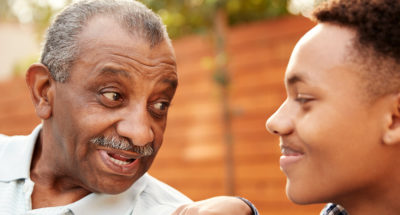
Gratitude Interview
Students interview an older person about gratitude, deepening their understanding of gratitude.

Students interview an older person about gratitude, deepening their understanding of gratitude.
Students will:
Take a moment to ask someone older than you about their thoughts about gratitude. Did this change or deepen your perspective about gratitude? If so, how?
“Nurturing Gratitude From the Inside Out: 30 Activities for Grades K–8” was originally developed by The Inner Resilience Program, in partnership with the Greater Good Science Center and the John Templeton Foundation.
For the entire curriculum, click here.
Do you notice if students’ attitudes toward gratitude has changed as a result of the interviews?
In addition to its benefits for adults, research suggests that gratitude is also good for youth, going hand in hand with greater hope and optimism, higher satisfaction with life, and fewer health complaints.
Students who experience greater positive emotions tend to put in more effort to overcome obstacles, engage in classroom activities more, and be less stressed at school. In addition, positive mental health in childhood is linked to educational achievement and professional success later in life.

Do you want to dive deeper into the science behind our GGIE practices? Enroll in one of our online courses for educators!
Comments